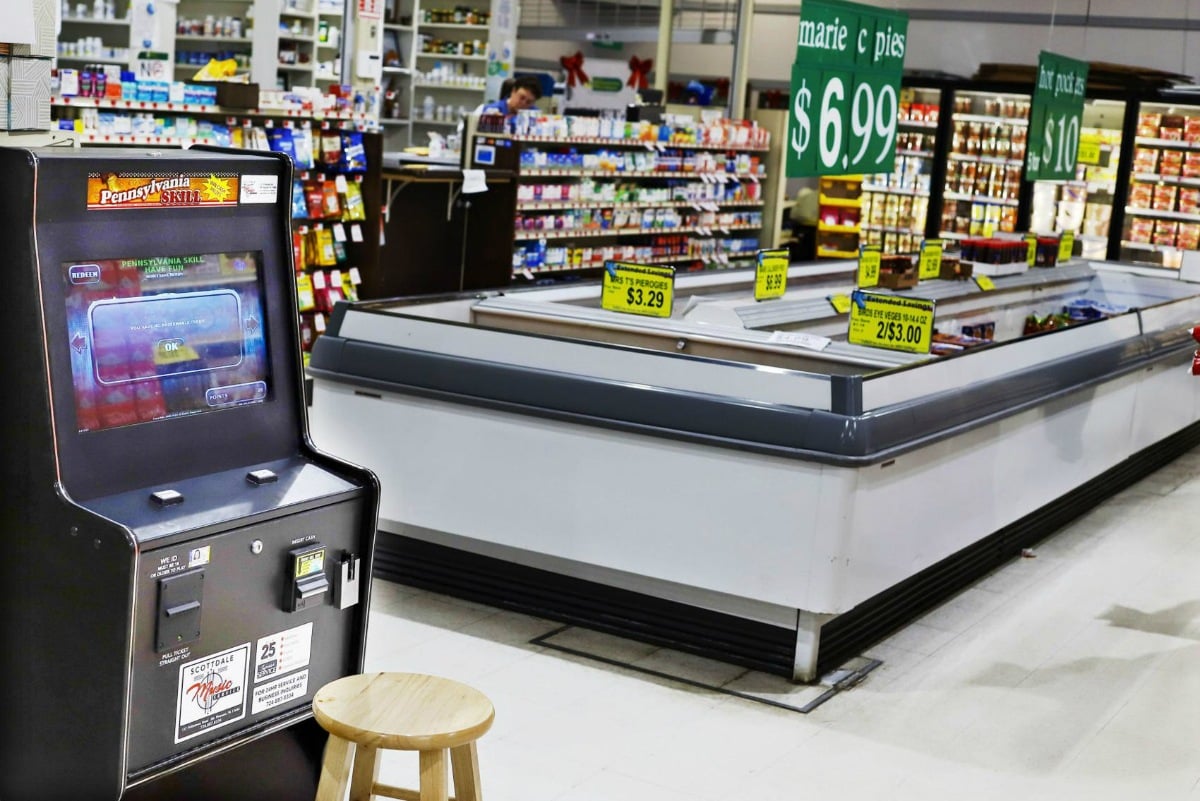Pennsylvania Convenience Store Owners Say Skill Games Critical to Survival
Posted on: July 27, 2020, 01:57h.
Last updated on: July 27, 2020, 04:45h.
Small convenience store owners in Pennsylvania say skill games — slot-like terminals that have proliferated throughout the Commonwealth — are playing a crucial role in keeping their businesses open.

Recently, an informal, unnamed grassroots coalition of small convenience store owners has emerged to give small business owners a seat at the table when negotiations regarding the legality of skill gaming devices are being considered.
The little guy needs to say something, and officials need to hear,” Billy Patel, the man responsible for organizing the alliance, told Lancaster Online. “That’s all it is. We need a seat at their table.”
There’s an estimated 15,000 skill gaming machines operating in the Keystone State. Along with convenience stores, they’re commonly found in restaurants and bars, barber salons, and grocery stores. But there are varying opinions on whether the unregulated and untaxed terminals are legal.
The primary difference between a slot machine and skill gaming machine is that after the reels are spun on the latter, the player must identify a winning payline — for instance, matching symbols. Businesses with the devices split winnings with the game manufacturer and distributor.
The machines operate under the brand “Pennsylvania Skill.” They’re manufactured by Miele Manufacturing in Williamsport and distributed by Pace-O-Matic of Pennsylvania (POM of PA). Convenience store owners say the devices provide them with around $2,000 per month in income. Without them, Patel says, he might be forced to close his store and relocate to a state with more favorable regulations.
High Tax Pillar
Patel says he reached out to numerous small convenience store owners in Pennsylvania who have included the skill gaming machines into their businesses. He explains that about 30 owners have banded together to make their voices heard in Harrisburg that the terminals are proving critical to their sustainability — especially during the coronavirus pandemic.
Pennsylvania has one of the highest tax rates on gasoline sales in the country. For every gallon sold, 58 cents goes to the state. The state also collects $2.60 off each pack of cigarettes.
We are cash cows for the state,” Patel stated. “We’re hurting now. Let us have this, is it too much to ask?”
The state’s powerful gaming industry, however, says Patel’s coalition is asking too much. A group called Pennsylvanians Against Illegal Gambling (PAIG), backed by the state’s 12 brick-and-mortar casinos, says skill gaming machines need to be eradicated.
“The bottom line is slot machines belong in casinos, not in pizza parlors, gas stations, or convenience stores,” said PAIG spokesperson Peter Shelley.
Penn National Gaming, the oldest casino operator in the state, agrees. Spokesperson Eric Schippers told Casino.org recently that the state has long passed its gaming saturation point.
Odd Court Decision
Commonwealth Court Judge Ellen Ceisler ruled in January that the Pennsylvania State Police, which views the skill gaming machines as illegal gambling, could resume raids on businesses to remove the devices.
But in her ruling, Ceisler declared that games of skill do not fall under the state’s Gaming Act, because the law doesn’t govern unlawful gambling.
“This Court recognizes that unless, or until, POM Games are considered to be illegal gambling devices under the Crimes Code, POM may suffer harms to its reputation and property interests as a result of the seizures,” Ceisler said.
Pace-O-Matic called that a win for its operations.
“We understand the confusion that exists, as law enforcement has a difficult time discerning between what is a legal skill game and what is an illegal gambling device,” said POM spokesperson Mike Barley. “Our commitment is to continue working with the legislature to regulate, tax, and provide strict enforcement of the legal skill game industry.”
Related News Articles
Most Popular
Sphere Threat Prompts Dolan to End Oak View Agreement
MGM Springfield Casino Evacuated Following Weekend Blaze
This Pizza & Wings Costs $653 at Allegiant VIP Box in Vegas!
Atlantic City Casinos Experience Haunting October as Gaming Win Falls 8.5%
Most Commented
-
VEGAS MYTHS RE-BUSTED: Casinos Pump in Extra Oxygen
— November 15, 2024 — 4 Comments -
VEGAS MYTHS RE-BUSTED: The Final Resting Place of Whiskey Pete
— October 25, 2024 — 3 Comments -
Chukchansi Gold Casino Hit with Protests Against Disenrollment
— October 21, 2024 — 3 Comments
















Last Comments ( 7 )
I am 70 yrs. old and have gambled responsibly my entire adult life. I agree with the comment below, we don't need so called skill machines alias slot machines staring you in the face every time you go to a gas station. The people who commented use self control, works for some of us but not people who have a gambling addiction, why make the temptation so available. Skill machines are found in every gas station where I live, a small rural community in Pa. This all happened in the last 5plus years, all owned by people of Indian descent. If you want to gamble make a trip to the casino, not something you would do every day.
It should be banned.asap because ppl are loseing there money.as well they don’t have money to pay for rent on time when they need to pay for living.so they have problems on there family because of these gaming machine.it’s only allowed in casino.as well casino business is going down.so casino must act on these matter.plus it’s illegal to have a skill machine on store and gas station.it must be baned.
People are responsible for themselves, we don't need regulation on the small mom n pop shops that have a fun room where adults can play.
I read some of the comments and first and foremost. Don't gamble money you can't afford to lose! It is adult gaming you wouldn't go out and spend $100 on a fancy dinner of you can't afford it the results are the same. You pay for the experience but in the end you return home with basically nothing. I am in support of localized gaming I grew up in Oregon and nearly EVERY PLACE has slots. But, they have to be hidden. They cannot be seen out a window or by minors Out there minors are not allowed in bars; even if your dad brings you in. It creates income, period. If some dummy cant handle his affliction for gambling HE can get help. We all dont need to be punished . Id prefer real slots though.
I only played one of those once for about 5 minutes. I spent a total of $7. I won $1250 and got up and left. Maybe some day I'll spend another $7. Maybe not. It's a good memory I don't want to mess it up.
When it comes to the history of Pennsylvania skill games, the first form which was legalized was horse racing. The regulation for the same began in the year 1964. The racing industry, however, dates back 200 years before this. While there were plenty of racing tracks that operated off the books before this, it was only in the year 1964 where the state determined that regulations had to be put in place.
Pa skill games are fucking killing people. The losses out weigh the winning by a huge amount . There creating problems in the community's you can loose your life's savings in a matter of fucking weeks. Fucking evil bastards . Kill m all